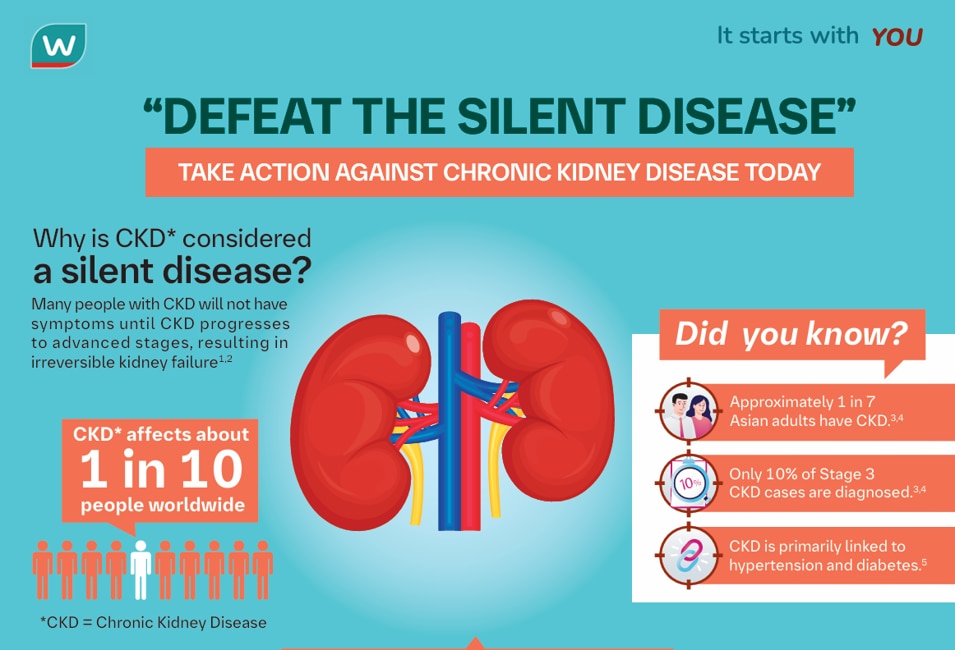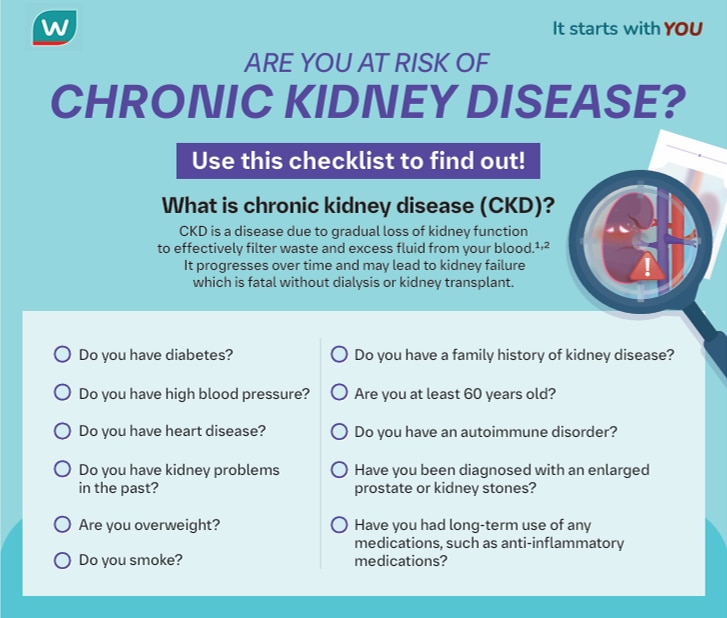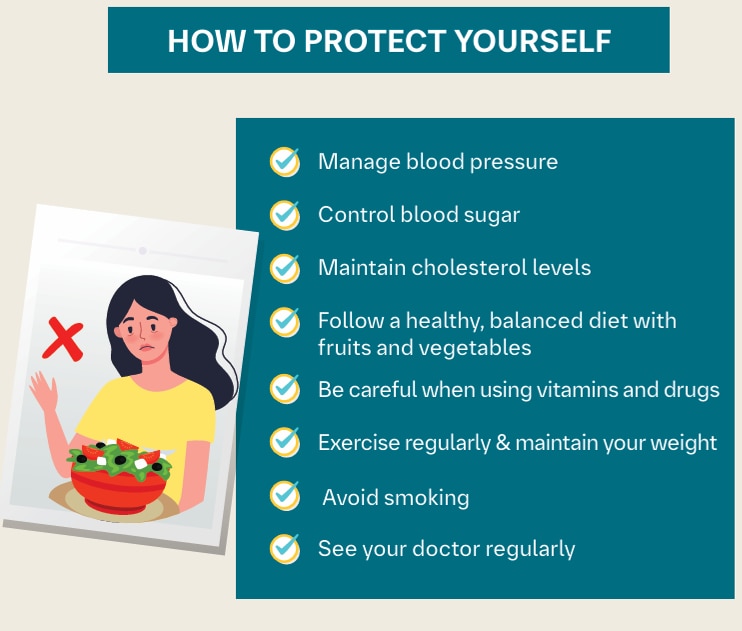Chronic Kidney Disease (CKD) is a disease due to gradual loss of kidney function to effectively filter waste and excess fluid from your blood. It progresses over time and may lead to kidney failure which is fatal without dialysis or kidney transplant.1,7

It affects 1 in 10 people worldwide and around 1 in 7 among Asian Adults.3,4 Only 10% of Stage 3 CKD cases are diagnosed.3 Many people with CKD will not have symptoms until CKD progresses to advanced stages, earning it the term, “silent disease”, and resulting in irreversible kidney failure.1,2
WHAT ARE RISK FACTORS FOR CKD?6,7
High blood pressure & Type 2 diabetes are the primary risk factors5 for CKD in Asia Pacific6,7.

Other conditions that will increase your risk for Chronic Kidney Disease are as follows:
- Cardiovascular Disease
- Obesity
- Smoking
- Family History of CKD
- Age
- Race and Ethnicity
- Long term use of any medications, such as anti-inflammatory medications
- Diagnosed with autoimmune disorder.
EARLY DIAGNOSIS IS KEY. CONSULT WITH YOUR DOCTOR TODAY!
- To understand your risk factors.
- To have your urine albumin-to creatinine ratio tested.
- To have your creatinine tested to be able to determine the estimated glomerular filtration rate.
- To have your Blood Pressure and blood sugar measured.
Understand your Numbers!8
- uACR (Urine Albumin-to-Creatinine Ratio): more than 30mg/dl Higher uACR value may indicate protein leakage in the urine.
- eGFR (estimated Glomerular Filtration Rate): less than 60 mL/min/1.73 m² Lower eGFR may indicate poorer kidney function.
Please note that there are different normal values for male and female. Please consult your doctor for more information

HOW TO PROTECT YOURSELF?8
- Manage your Blood Pressure.
- Control Blood Sugar.
- Maintain Cholesterol Levels.
- Follow a healthy, balanced diet with fruits and vegetables.
- Be careful when using vitamins and drugs.
- Exercise regularly and maintain your weight.
- Avoid Smoking.
- See your doctor regularly.

IT’S TIME TO MAKE KIDNEY HEALTH A #1 PRIORITY!
References:
- Mayo Clinic. Chronic kidney disease. Published September 3, 2021. Accessed April 14, 2025. https://www.mayoclinic.org/diseases-conditions/chronic-kidney-disease/symptoms-causes/syc-20354521.
- Kovesdy CP. Epidemiology of chronic kidney disease: an update 2022. Kidney Int Suppl (2011). 2022;12(1):7-11. doi:10.1016/j.kisu.2021.11.003.
- Ravera M, Noberasco G, Weiss U, et al. CKD awareness and blood pressure control in the primary care hypertensive population. Am J Kidney Dis. 2011;57(1):71-77.
- Ryan TP, Sloand JA, Winters PC, Corsetti JP, Fisher SG. Chronic kidney disease prevalence and rate of diagnosis. Am J Med. 2007;120(11):981-986.
- Kidney disease statistics for the United States. December 2016. National Institutes of Health. National Institute of Diabetes and Digestive and Kidney Diseases. Accessed April 14, 2025. https://www.niddk.nih. gov/health-information/health-statistics/kidney-disease.
- Kidney Disease: Improving Global Outcomes (KDIGO) Diabetes Work Group. KDIGO 2022 Clinical Practice Guideline for Diabetes Management in Chronic Kidney Disease. Kidney Int. 2022;102(5S):S1–S127.
- National Kidney Foundation. Accessed April 14, 2025. ttps://www.kidney.org/.
Document Number: NP-PH-100297 | Production Date: April 2025.
Disclaimer:
These product recommendations are generated based on your Watsons Club Membership record, which includes both prescription medications prescribed by your doctor and over-the-counter products you have previously purchased. To purchase a medication with an Rx label, a valid prescription from your doctor must be presented.
These recommendations are for information purposes only and do not replace professional medical advice, diagnosis, or treatment. Always consult your doctor before making any health-related decisions.







